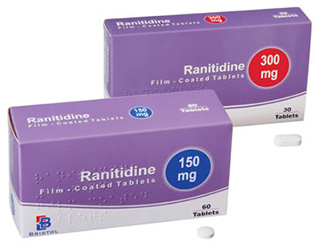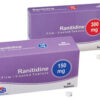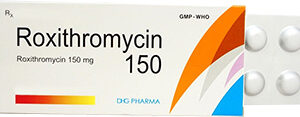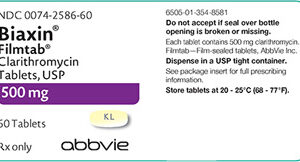Ranitidine, also known by its brand names Zantac and Acid Reducer, is a medication used to treat conditions that involve excessive stomach acid production. It belongs to a class of drugs called histamine-2 blockers, which work by reducing the amount of acid produced in the stomach. Ranitidine is available both as a prescription and over-the-counter medication.
It is commonly used to relieve symptoms such as heartburn, acid indigestion, and sour stomach caused by gastroesophageal reflux disease (GERD). Additionally, it is prescribed for the treatment and prevention of stomach and intestinal ulcers. Ranitidine can also be used as part of a combination therapy to treat H. pylori infections and to prevent stress ulcers in critically ill patients.
Warnings
Before taking ranitidine, it is important to be aware of certain contraindications and precautions. The following are situations in which ranitidine should not be used:
- Allergy or hypersensitivity to ranitidine or any of its ingredients
- History of a severe allergic reaction to other H2 blockers
- Individuals with porphyria, a rare genetic disorder affecting the production of heme, should avoid ranitidine
- Patients with kidney or liver disease should use ranitidine with caution, and dosage adjustments may be necessary
- Patients who are pregnant or breastfeeding should consult their healthcare provider before using ranitidine
In case of an allergic reaction or any severe side effects, immediate medical attention should be sought.
Ranitidine and Your Health
While ranitidine is generally well-tolerated, like any medication, it can potentially cause side effects. These side effects may vary in severity and can include:
- Headache and dizziness
- Nausea, vomiting, and diarrhea
- Abdominal pain and constipation
- Changes in taste sensation
- Rarely, ranitidine may cause serious side effects such as liver problems, blood disorders, and allergic reactions
If any of these side effects persist or worsen, it is advisable to consult a healthcare professional. It is important to note that not everyone experiences side effects, and many people take ranitidine without any adverse reactions.
Dosage Guide
Ranitidine is available in various forms, including tablets, capsules, and oral solutions. The dosage may vary depending on the individual’s condition, age, and response to treatment. It is crucial to follow the prescribed dosage and instructions provided by the healthcare provider or adhere to the directions on the package label for over-the-counter ranitidine.
If a dose of ranitidine is missed, it can be taken as soon as remembered. However, if it is close to the next scheduled dose, the missed dose should be skipped and the regular dosing schedule resumed. It is important not to double the dose to make up for a missed one.
An overdose of ranitidine can lead to symptoms such as rapid heartbeat, confusion, hallucinations, and difficulty breathing. If an overdose is suspected, immediate medical attention should be sought or the local poison control center contacted.
Ranitidine and Other Medications
Ranitidine may interact with certain medications, affecting their effectiveness or increasing the risk of side effects. It is essential to inform the healthcare provider about all the medications, supplements, and herbal products being taken, including prescription and over-the-counter drugs.
The following medications may interact with ranitidine:
| Medication | Potential Interaction |
|---|---|
| Warfarin | Ranitidine may increase the risk of bleeding |
| Atazanavir | Concurrent use may decrease the effectiveness of atazanavir |
| Procainamide | Ranitidine may increase the level of procainamide in the blood |
| Antacids | They should be taken at least 2 hours apart from ranitidine to avoid interaction |
Ranitidine: Inquiry and Response
- Q: Can I take ranitidine with food?
- A: Ranitidine can be taken with or without food. However, it may be more effective when taken before a meal or at bedtime.
- Q: How long does it take for ranitidine to work?
- A: The onset of action of ranitidine varies but is typically within one hour of taking the medication.
- Q: Can I drink alcohol while taking ranitidine?
- A: Alcohol can increase the risk of stomach ulcers and may interfere with the effectiveness of ranitidine. It is best to consult a healthcare professional regarding alcohol consumption.
- Q: Can ranitidine be taken during pregnancy?
- A: Ranitidine should only be used during pregnancy if the potential benefits outweigh the risks, and under the recommendation of a healthcare provider.
- Q: Is ranitidine habit-forming?
- A: Ranitidine is not habit-forming and does not pose a risk of addiction or dependence.






Reviews
There are no reviews yet.